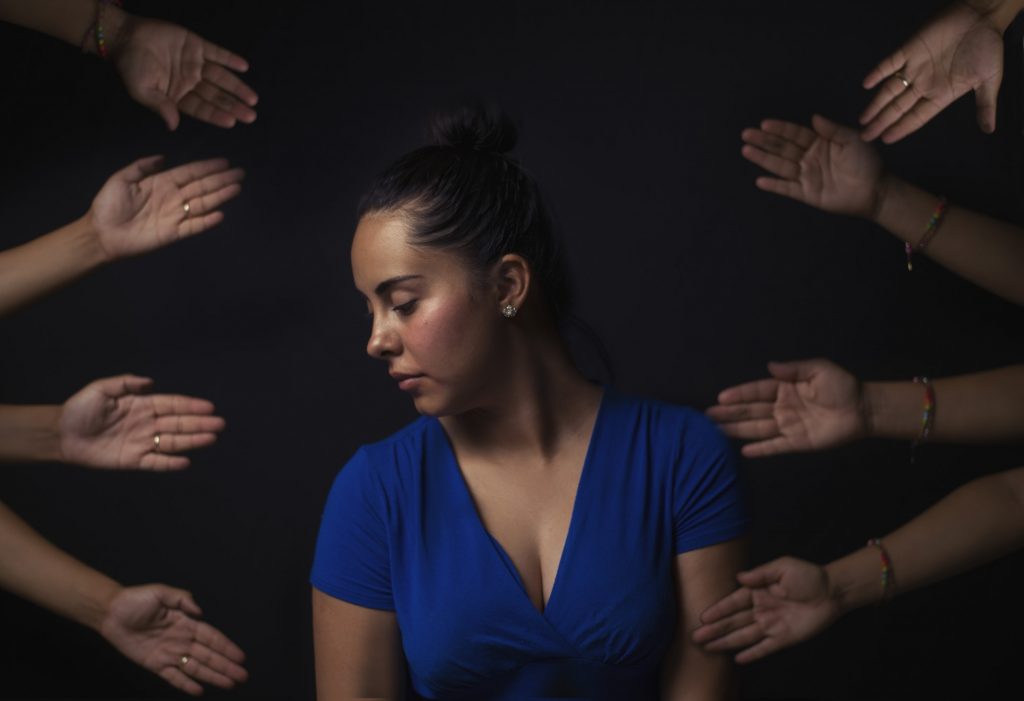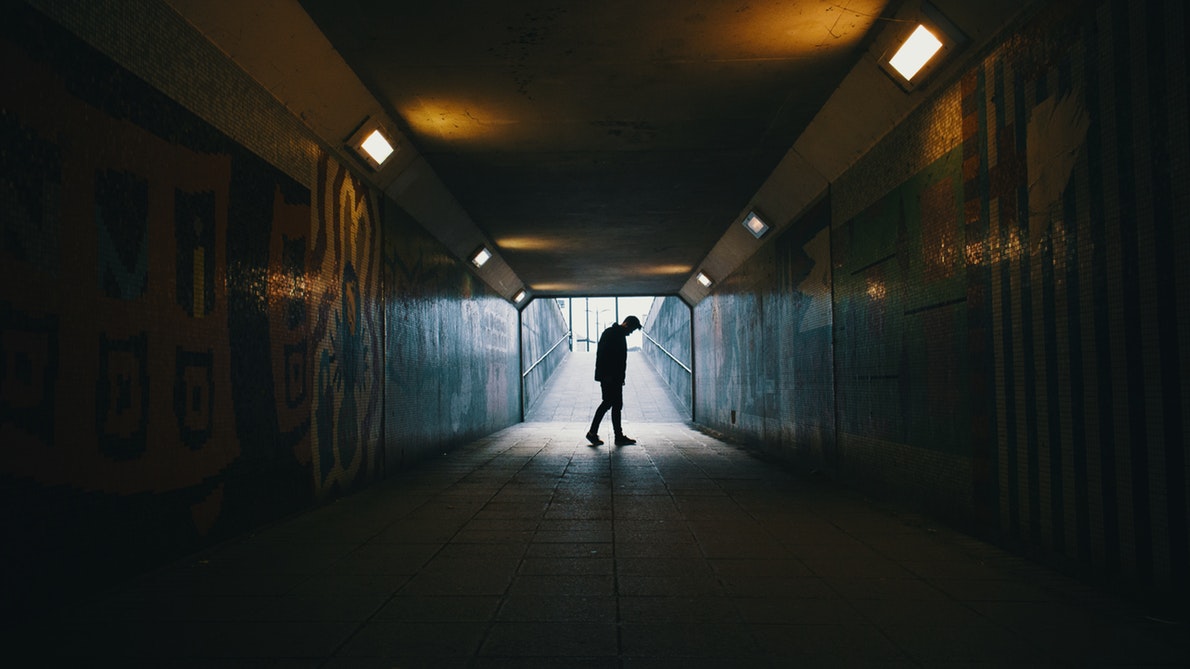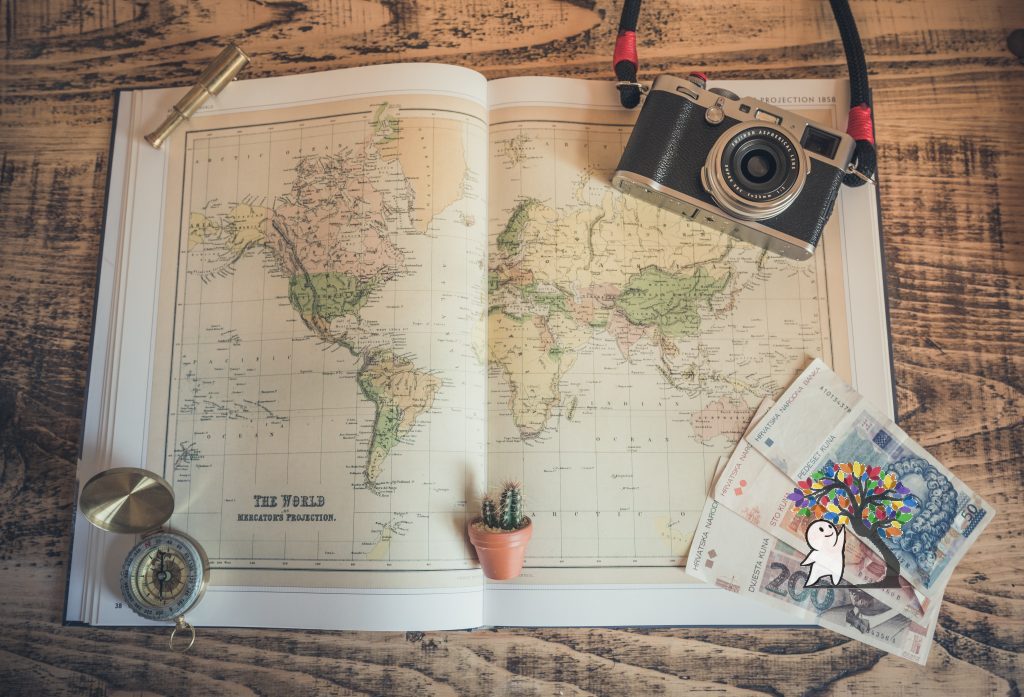5 Effective Ways to Cope with Loneliness

Loneliness is driven by many different factors. Communication problems, racial and cultural intolerance, and environmental influences can all increase one’s chance of experiencing loneliness. But, research has shown that genetics also plays a part on loneliness. A study was conducted in 1994 and 1995 on 1,116 pairs of 18 year-old same-sex twins in the U.K. The purpose of the study was to determine whether or not there was a connection between social isolation and loneliness, how the two relate to depression, and whether genetics influences them. Participants reported their levels of of social isolation, loneliness, and depressive symptoms. The results concluded that young adults who socially isolate themselves don’t necessarily experience loneliness.
However, those who experienced loneliness often struggle with depression, mainly because the same gene influences the two. Social isolation is when one has limited social connections and interactions. But, loneliness is when one feels socially and emotionally disconnected from those around them. This is why someone can experience loneliness when they’re in a room full of people, while another person who seeks solitude can find contentment in being alone. The study has concluded that no one specific gene predisposes you to loneliness, but rather, it may be influenced by several genes. Similar to the complex biological makeup of loneliness, there is not a single, clear-cut answer for curing loneliness. However, there are effective strategies to approach it. Psych2Go shares with you 5 ways to cope with loneliness:

1. Normalize and accept your loneliness.
Director John Cacioppo of the University of Chicago’s Center for Cognitive and Social Neuroscience has been studying loneliness for over 20 years. He discovered that loneliness is on the rise. The rate increased from 11-20% in the 1970s and 1980s to 40-45% in 2010. These statistics show that you are not alone when struggling with loneliness, but like most mental health issues, there is still a strong stigma attached to it. It remains unclear as to why there is a significant rise to loneliness. They can be linked to the rising divorce rates, people moving frequently, and many social inequalities that have yet to be resolved that cause us to feel more separated, rather than united.
It is imperative that we make an effort to normalize, accept, and talk openly about loneliness. Protagonist Holden Caulfield from The Catcher in the Rye by J.D. Salinger exhibits many symptoms of loneliness. Like Caulfield, many young adults experience loneliness because it is often a time of big changes and major decision-making. Many young adults put up a front, especially with social media that makes it easy to pose for happy photos and write positive statuses. In reality, many may dread the next move they make and experience a lot of uncertainty and fear. I’ve come to find that many people either love Caulfield because they can relate to him or find him annoying because he “whines too much.” The same can be said for those who post openly about their struggles with loneliness.
This goes back to the stigmatization of loneliness. Is it wrong or invalid for someone to express their thoughts because they do not necessarily reflect a more promising aspect of their lives? And why do we readily accept the end goal of happiness, but not the struggles and failures that are inevitably a large part of the journey? Suffice it to say, we still have a lot of work to do if we want to normalize loneliness. But, it’s an important and essential first step.

2. Identify and respond to your thoughts that demonstrate loneliness.
You can start by writing down your thoughts when you feel lonely. Common thoughts of loneliness include “I will always be alone,” or “No one likes me. That’s why I’m alone.” Know that it’s normal to have these thoughts because they are experienced by many. But instead of allowing them to consume you, you can learn to respond to them in ways that will help you.
For example, you can remind yourself that you are only temporarily alone. If you feel lonely because your close friends and family are busy, you can make plans for another day that works for the both of you. Or, perhaps you feel lonely because you went through a breakup or haven’t found someone that you want to be with in a relationship. Remember: postponement is not an accurate depiction of the ultimate outcome. Sometimes the timing can be tricky to work with, but loneliness isn’t a dead end. It’s an emotion that’s telling you to give connection another try.

3. Be careful when comparing yourself to others.
Psychologist Leon Festinger developed the social comparison theory in 1954. He hypothesized that we make comparisons as a way to evaluate ourselves. The judgments we make of others is a way to protect ourselves and assess threats that can be evolutionarily traced. Professor Thomas Mussweiler of organizational behavior at London Business School states, “It’s one of the most basic ways we develop an understanding of who we are, what we’re good at, and what we’re not so good at. Even when you’re faced with a standard that’s extreme, first you compare, then you correct for the outcomes.”
Comparison is a natural human impulse and there’s no way of avoiding it altogether. However, we can understand the way it works and monitor the ways in which comparing ourselves to others negatively affect us more than they benefit us. If you find yourself comparing your life to someone else’s based on the accomplishments and happiness they project on social media, remind yourself that you don’t know what their life is like behind the screen. Comparison can often lead to feelings of loneliness because your ideals only increase when you focus on what you lack that make you feel even more disconnected from reality. If you’re going to compare, learn to channel your comparisons to who you were in the past. Remind yourself of the progress you’ve made and what you have right now.

4. Break out of habits that hold you back.
Identify any habits you have that may increase your self-doubts. Are you prone to saying no to trying new things? Do you shoot down opportunities to build new relationships because you are afraid of rejection? When you are focused more on what you are internalizing and live passively from the walls you build, you rob yourself of the growth you can achieve that may alleviate the loneliness you experience. Although it may not be fully cured, when you are receptive to new doors that open for you, you can come across resources or build a support system that can help you cope with loneliness better.

5. Practice compassion; be kind to yourself.
When you step out of your comfort zone and take a chance at meeting new people or face new challenges, it’s important to practice compassion. Don’t beat yourself down every time you get hurt or make a mistake. Learn to stand up against your own inner critic. Most importantly, don’t allow each failure to influence you to isolate yourself from others even further. First, learn to be be kind to yourself. See the errors you make as opportunities to grow and get better at something. Then, reach out and build strong, authentic connections with others who care about your well-being.
Let’s normalize loneliness and start talking! How do you cope with it? Psych2Go would love to hear your thoughts! Please be sure to leave a comment down below!
References:
Entis, L. (2016, June 22). Chronic Loneliness is a Modern-Day Epidemic. Fortune. Retrieved November 30, 2017.
Firestone, L. (2017, September 28). What Drives Our Loneliness? Psychology Today. Retrieved November 30, 2017.
How to Cope with Loneliness. (2016, April). Retrieved November 30, 2017, from www.mind.org
Leahy, R. (2017, February 9). Living with Loneliness. Psychology Today. Retrieved November 30, 2017.
Matthews, T., Danese, A., Wertz, J. et al. Soc Psychiatry Psychiatr Epidemiol (2016) 51: 339. https://doi.org/10.1007/s00127-016-1178-7
Webber, R. (2017, November 7). The Comparison Trap. Psychology Today. Retrieved November 30, 2017.
Winch, G. (2016, December 14). Is There a Gene for Loneliness? Psychology Today. Retrieved November 30, 2017.




My life is shaped as introvert type. My way of coping from loneliness is through reading books and social media accounts. Happiness for me is when i learn something to what i am reading.
Hi Omicalzom, thanks so much for reading! =) I do the same when I cope with loneliness, too. Reading is just a great form of escapism overall and I feel less lonely when I tend to read books with characters I can relate to. One of my favorite writers is Haruki Murakami. I turned to his books a lot growing up (and still do). He explores themes of alienation and loneliness. I highly recommend him if you haven’t read any of his works yet! Thank you for sharing your thoughts! I hope you have a great day! =)
For sure! the more you learn about yourself, the more at peace you are! 🙂 What books do you enjoy?
This came in handy, I really needed to read something helpful about coping with loneliness as the end of the year approaches and this is the time when I feel lonely the most. Social media is ruining my mental health and I wish I could ban them forever, but I can’t because of work. So thank you for this article, it certainly gives me the motivation I need. 🙂
Thanks for sharing! The end of the year is a tough time. What is it about social media that makes it hard for you?
I just can’t avoid comparing myself to others, even though I KNOW most of what I see is pretend. But sometimes seeing people surrounded by friends, traveling, having relationships, and getting way more reactions in their posts than I do just ruins my mood. It makes me feel that I’m failing at living and that I’ll always be alone, no matter how nice I am to others. A lot of close friends have unfollowed me this year because I’ve been through a hard time (coping with anxiety and depression and trauma) and I guess they just can’t deal with me being so sad (I don’t share my frustrations online anymore, but I guess it’s late now). I understand they don’t have to deal with that, but seeing them leaving makes me feel even worse.
Thanks for opening up and sharing your story. This is something a lot of people can relate to. I too can as well! Social media these days can be harmful as much as the good that they do, especially when everything’s out in the public and everyone can see.
Hi Emmanuella, thanks so much for reading and for sharing your thoughts with us. I’m sorry to hear that you’ve been going through a rough patch with your anxiety, depression, and trauma. I think you’re right when you say that most of what you see is pretend. People often project only what they want the world to see. But, I’m glad that you recognize that. I hope things get better, is there any content you’d like to see from us in the future that may help you? Or any questions or other concerns you may have? We’re more than happy to assist you!
Hi Catherine,
I really love this article and from reading the other comments posted I can tell that this topic hits home for a lot of people.
I like how the beginning of your article clarifies that loneliness and social isolation aren’t one in the same and I think the twin study substantiates that claim very nicely.
I do think that the first point loses a little bit of efficacy by focusing more on why we should normalize loneliness as opposed to how. I know it’s different for everyone but if you’re framing it as an article looking at coping strategies then focusing on that portion might give it more substance.
My favorite strategy is the fifth point: being kind to yourself. It’s a simple concept but can be difficult to put in to practice. Being kind and compassionate to one’s self is a great starting point for coping and healing.
Hi Valencia, thanks for the suggestion, I will try to expand on how to normalize loneliness! I’m glad you like the 5th point; it’s my favorite as well. It’s definitely something easier said than done, but with enough practice like many things in life, I think it can be achieved. Thank you as always for reading and for sharing your insights with us! I hope you have a great day!
Well, my way of coping is through listening to music, singing intune with the music and lyrics, doing chores at home.
Lovely to hear! that sounds like a healthy way to cope 🙂
Hi Francis, thanks so much for reading! =) I love listening to music, too, and washing dishes for me is a great way to clear my head when I’m feeling rather down or overwhelmed. I also enjoy going for walks. Basically, when I keep myself occupied, I feel less lonely, because I’m always on the go. I try to live an active life, rather than a passive one. It helps me stay in motion and I learned over time that when I’m moving, I become less afraid of challenges. I discovered that when I stay in my comfort zone, it only intensifies the loneliness. I’m glad that when you do chores, it helps you stay productive. That definitely keeps the loneliness at bay. =) Thanks so much for sharing your thoughts and I hope you have a great day!
Thank you for this!!!
The last paragraph hits me. I’m actually in self sabotaging phase where I let my insecurities, doubts and fears take over me. I know it’s bad but I couldn’t help myself and I also feels that no one will be there to help me.
I’m also avoiding my friends at all cost. But I know I can get through this mess like I usually do. ??
BTW I love your topics/articles they’re well written. Keep it up ☺
We’re happy to hear you leave a comment! Sometimes, we do need to be on our own, but I hope you have people who can also be there for you and lend you a listening ear. 🙂
Hi Akirez, thanks so much for reading! =) I’m so glad our content speaks to you, because we make it a priority to create relatable work that people can connect with. It’s always a joy receiving feedback from awesome readers like you! When I was writing the last paragraph, I had a wake up call myself, too. Being kind to ourselves is important. Often times, it’s easy to be critical of the mistakes and failures we make, but I think what’s more important is how we choose to overcome them and not letting them define us. Nowadays, I’m thankful even for the bad days, because there’s always something valuable I can take and learn from them. It’s normal for our insecurities, doubts, and fears to be loud and influence us, but you seem like a great person just for taking the time to be brave and share your thoughts with us! I hope you don’t let your inner critic drive you away from the good days! Please let us know if there’s any specific content you’d like to see more of. We’re always more than happy to help! I hope you have a great day! =)
[…] you enjoyed this article, you may also like 5 Effective Ways to Cope with Loneliness and 5 Factors that Drive Our Loneliness from […]
I’m not going to lie. This list wasn’t very helpful at all. I’ve had most of my life to make peace with my loneliness, try to look at it through an objective lens, and no amount of normalization or self forgiveness made me any less isolated.
I’m pretty sure the side effects of my social isolation; being unpracticed, coming off as a downer, having no social capital, being clingy, make me less and less attractive as a friend. I can try hobbies or online meetups but I’m rarely more than a third wheel, and all the people as similarly damaged as me are flakey and self-sabotaging.